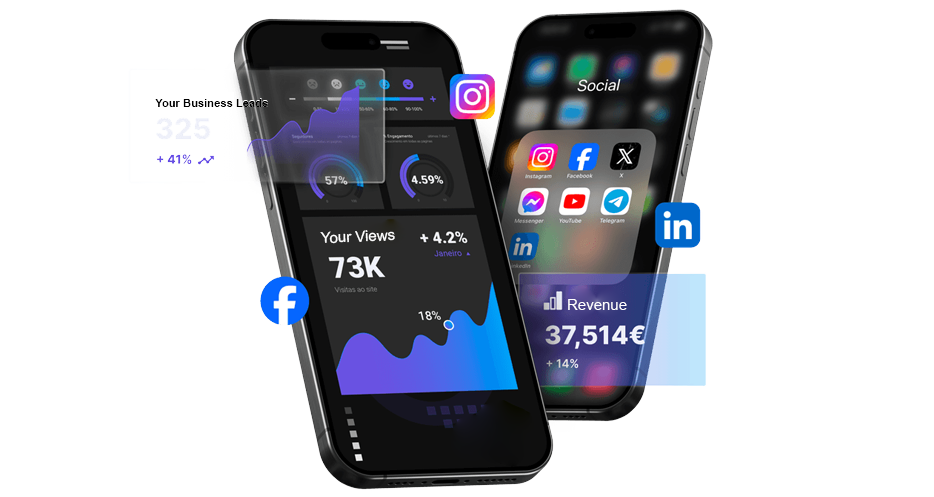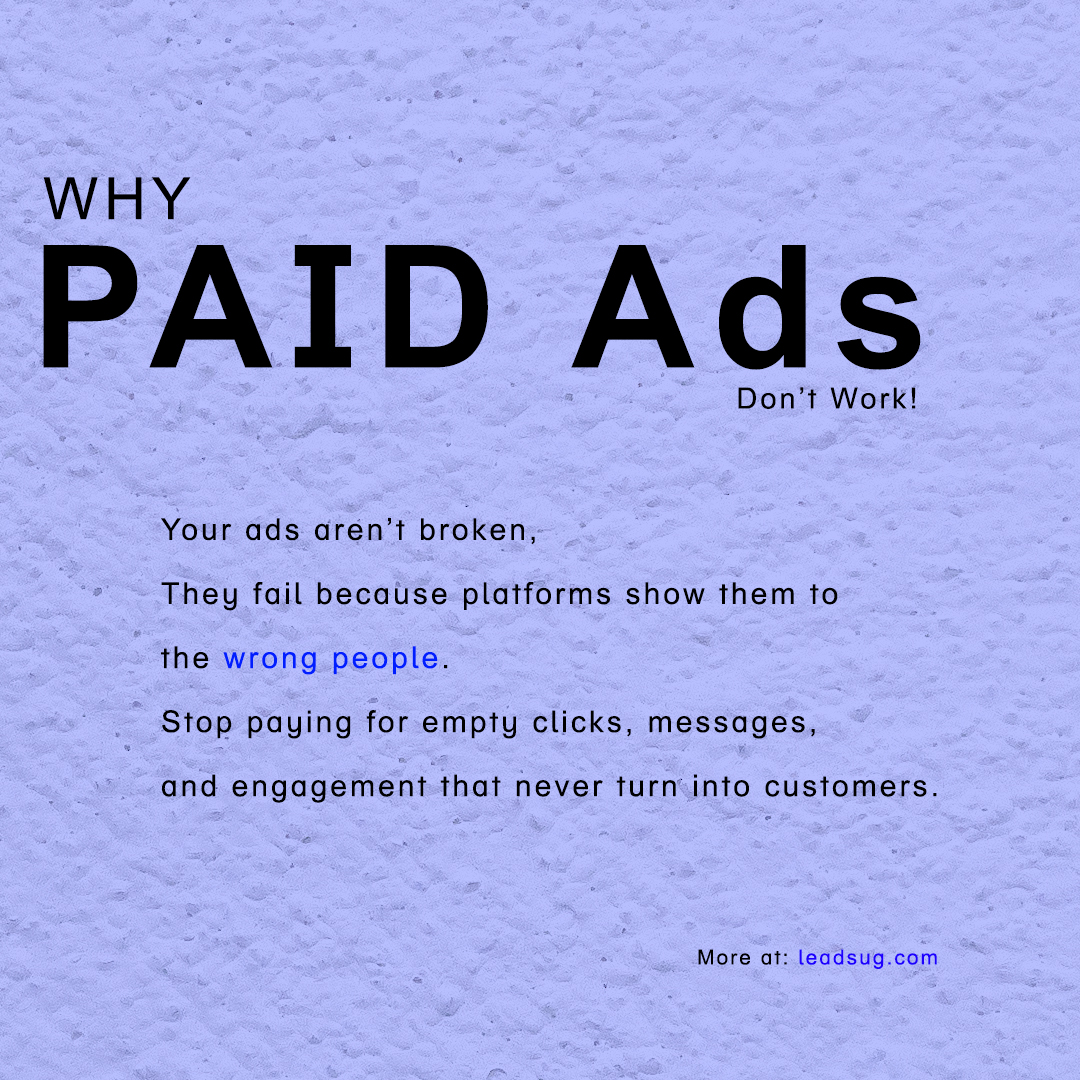In the fast-evolving business world, digital marketing has become the backbone of success. Traditional marketing methods, such as print advertisements and billboards, are no longer sufficient in a world driven by technology. Digital marketing offers businesses an opportunity to reach a wider audience, increase revenue, and build strong brand recognition. Whether you're a small business owner or an entrepreneur looking to expand, adopting digital marketing can revolutionize your growth trajectory.
What is Digital Marketing?
Digital marketing refers to the use of online platforms, technologies, and strategies to promote businesses, products, or services. It includes techniques such as search engine optimization (SEO), social media marketing (SMM), content marketing, pay-per-click (PPC) advertising, and email marketing. By leveraging digital channels, businesses can connect with their target audience more effectively than traditional advertising.
Why Digital Marketing is Essential for Business Growth
Increases Online Visibility and Brand Awareness
> With billions of users online daily, digital marketing ensures your business stands out. Through strategic SEO practices, social media campaigns, and content marketing, businesses can reach potential customers where they spend most of their time—on the internet.
Cost-Effective Compared to Traditional Marketing
> Unlike expensive TV, radio, and print ads, digital marketing offers affordable options such as social media advertising and email campaigns. Businesses can run highly targeted marketing campaigns at a fraction of the cost of traditional media.
Targeted Marketing for Better ROI
> One of the most significant advantages of digital marketing is precision targeting. Platforms like Google Ads and Facebook Ads allow businesses to target customers based on demographics, interests, behavior, and location. This ensures that every marketing dollar is spent efficiently, maximizing return on investment (ROI).
Engages Customers Through Personalized Experiences
> Digital marketing allows businesses to interact with customers in real time through personalized emails, chatbots, and social media engagement. Customers appreciate brands that respond to their needs quickly, increasing trust and loyalty.
Measurable and Data-Driven Insights
> Unlike traditional marketing, where measuring success can be challenging, digital marketing provides real-time analytics. Tools like Google Analytics, Facebook Insights, and email tracking software allow businesses to monitor their campaigns, identify trends, and optimize for better results.
Boosts Sales and Revenue Growth
> With digital marketing strategies like PPC and social media ads, businesses can generate high-quality leads and drive more conversions. By optimizing landing pages and using compelling call-to-action (CTA) buttons, companies can significantly increase sales.
Enhances Brand Credibility and Trust
> Customers trust businesses that have a strong online presence, including well-maintained websites, active social media pages, and positive online reviews. A business that invests in digital marketing establishes itself as an authority in its industry.
Gives Small Businesses a Competitive Edge
> Digital marketing levels the playing field for small businesses. Even with a limited budget, small companies can compete with larger corporations by implementing smart SEO strategies, engaging social media content, and cost-effective paid advertising.
Encourages Customer Engagement and Loyalty
> Through consistent digital engagement—such as email newsletters, live chats, and social media interactions—businesses can nurture relationships with customers, leading to repeat sales and long-term loyalty.
Expands Market Reach Beyond Geographical Limits
> Traditional marketing limits businesses to specific regions, while digital marketing enables global reach. An e-commerce store, for example, can sell products to customers worldwide using digital strategies like SEO, influencer marketing, and Google Ads.
“Don't miss out. Jump onto what's delivering better results now.”
Key Digital Marketing Strategies Every Business Should Adopt
Search Engine Optimization (SEO)
> SEO helps businesses rank higher on search engines, driving organic traffic to their websites. Optimizing content with relevant keywords, backlinks, and high-quality information ensures long-term visibility.
Social Media Marketing (SMM)
> With billions of users on platforms like Facebook, Instagram, LinkedIn, and Twitter, businesses can engage with customers directly, share updates, and promote products effectively.
Content Marketing
> Creating valuable content, such as blog posts, videos, and infographics, positions businesses as industry leaders while driving organic traffic to their websites.
Pay-Per-Click (PPC) Advertising
> PPC ads allow businesses to target specific audiences and drive immediate traffic to their websites. Platforms like Google Ads and Facebook Ads make it easy to launch campaigns with measurable results.
Email Marketing
> Email marketing remains one of the highest ROI-generating strategies. Personalized email campaigns keep customers engaged and informed about promotions, updates, and special offers.
Influencer Marketing
> Partnering with social media influencers helps businesses tap into new audiences and build trust through third-party endorsements.
FAQs
Q. How can digital marketing benefit my business?
A. Digital marketing increases visibility, generates leads, boosts sales, and enhances customer engagement through targeted strategies.
Q. Is digital marketing expensive?
A. No, digital marketing is cost-effective. Businesses can start with free tools like SEO and social media marketing, then scale up with paid ads as needed.
Q. How long does it take to see results from digital marketing?
A. Results vary based on strategy. PPC campaigns can show immediate results, while SEO and content marketing may take months to yield significant benefits.
Q. Do small businesses need digital marketing?
A. Absolutely! Digital marketing helps small businesses compete with larger companies by reaching a broader audience at a lower cost.
Q. Which digital marketing strategy is best?
A. The best strategy depends on business goals. SEO is great for long-term growth, PPC for instant traffic, and social media for brand engagement.
Q. Can I do digital marketing myself, or should I hire an agency?
A. You can start on your own with free tools and resources. However, hiring an agency ensures expert strategies and faster results.
Conclusion
The digital world is constantly evolving, and businesses that fail to adapt will be left behind. Digital marketing is no longer optional—it is a necessity for growth, engagement, and success. From increased visibility to cost-effectiveness and better customer targeting, adopting digital marketing strategies can transform businesses in ways traditional marketing never could. Whether you're a startup, a small business, or a large enterprise, now is the time to embrace digital marketing and secure your spot in the competitive market.



